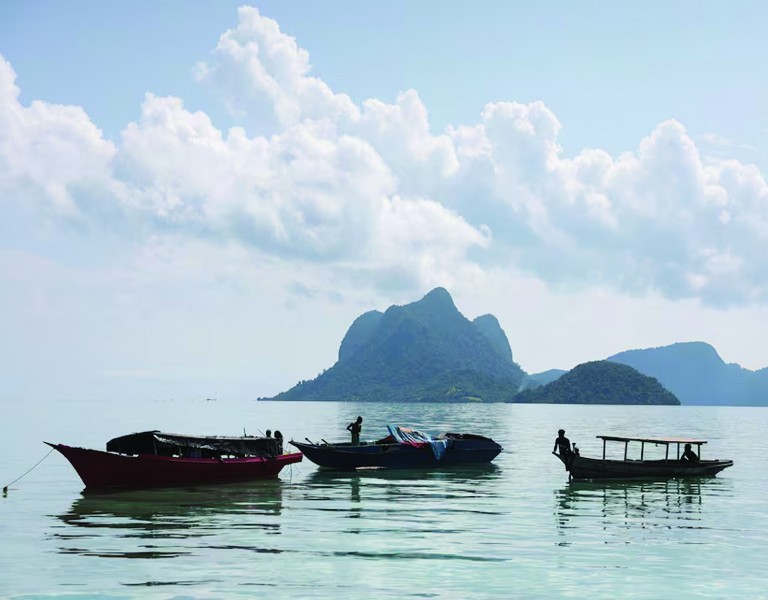Like many undocumented Bajau Laut, Robin goes by one name and does not know his exact age. But he said he can trace his family's history in the area, with his grandparents buried on an islet in the government-protected park.
To earn his livelihood, Robin said he used to fish and gather wood from the islands to sell on the mainland, but has been unable to do so since he was evicted.
GROWING SCRUTINY
Reuters was unable to verify Robin's account, but state officials confirmed the campaign to remove intruders from protected areas of the park in the Semporna district.
"The Sabah government will take all necessary action to help," Hajiji Noor, the state's chief minister, told Reuters, adding that authorities had found another coastal area in Semporna to resettle the community.
A fifth of the roughly 28,000 Bajau Laut identified by the government in Sabah are Malaysian citizens, though analysts believe the figure could be higher.
The state has an estimated 1 million undocumented residents, including stateless indigenous communities and economic migrants from neighbouring Philippines and Indonesia.
The evictions of the Bajau Laut come amid growing scrutiny of Malaysia’s treatment of migrants. In March, New York-based Human Rights Watch said authorities had detained about 45,000 undocumented people since May 2020.
The move has sparked outrage and debate in Malaysia, with some activists calling for citizenship for the community to ensure better protection, though some voiced concern over national security.
Bilkuin Jimi Salih, 20, a Bajau Laut youth born in Sabah, said a Malaysian identity document was key to securing better education and job opportunities.
"I had many ambitions ... to become a policeman, a soldier, but I can't because I don't have documents," said Bilkuin, who now teaches at Iskul Sama DiLaut, a non-government body that educates stateless children.
His efforts to build a career were hampered by the lack of a birth certificate and identity card, he added.
"It's costly to take a pregnant woman to hospital, and that's how I realised why I wasn't born in a hospital," he added. "My family was too poor to afford it."
Winning citizenship may be difficult, however, Vilashini said, in view of the community's disputed origins and a lengthy history of squabbles over resources between undocumented people and the residents of one of Malaysia's poorest states.
She urged the authorities to better engage with the community to resolve the issue, adding, "It has to be consensual, it has to be respectable."
Without documents, life feels truly unfair, Bilkuin said. "We want to have documents so that ... our children won't experience what we've been through."
The Reuters Daily Briefing newsletter provides all the news you need to start your day. Sign up here.
Writing by Rozanna Latiff; Editing by Clarence Fernandez

Comments (0)
No comment